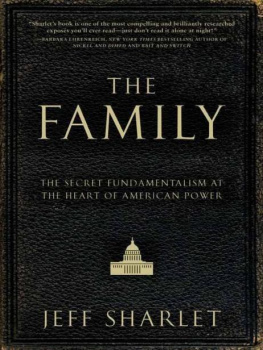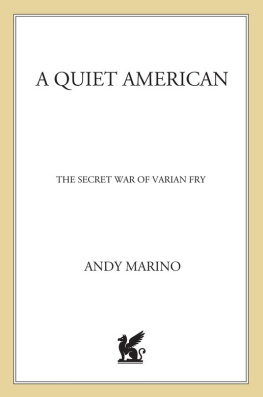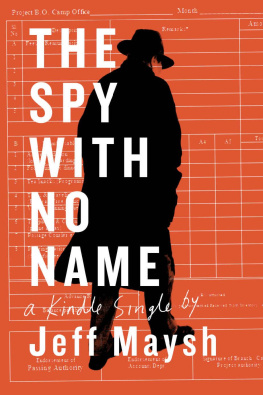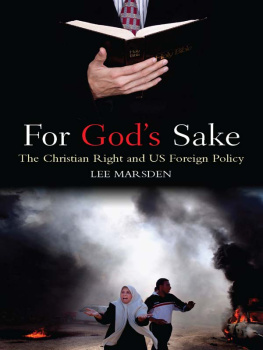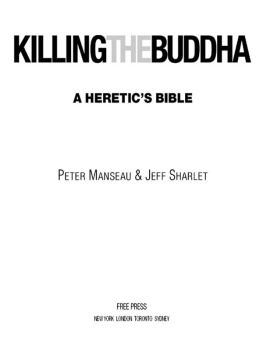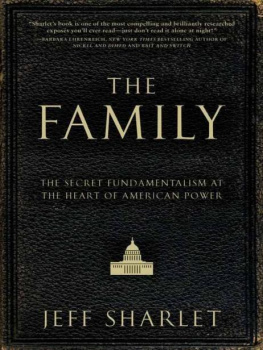The Family
The Secret Fundamentalism
at the Heart of American Power
Jeff Sharlet

In memory of Nancy Goodlin Sharlet
Contents
T HIS IS HOW THEY pray: a dozen clear-eyed, smooth-skinned brothers gather in a huddle, arms crossing arms over shoulders like the weave of a cable, leaning in on one another and swaying like the long grass up the hill from the house they share, a handsome, gray, two-story colonial that smells of new carpet, Pine-Sol, and aftershave. It is decorated with lithographs of foxhunters and pictures of Jesus, and, in the bunk room, a drawing of a C4 machine gun given to them by their six-year-old neighbor. The men who live there call the house Ivanwald. At the end of a tree-lined cul-de-sac in Arlington, Virginia, quiet but for the buzz of lawn mowers and kids playing tag in the park across the road, Ivanwald is one house among many, clustered like mushrooms, nearly two dozen households devoted, like these men, to the service of a personal Jesus, a Christ who directs their every action. The men tend every tulip in the cul-de-sac, trim every magnolia, seal every driveway smooth and black as boot leather. Assembled at the dining table or on their lawn or in the hallway or in the bunk room or on the basketball court, they also pray, each mans head bowed in humility and swollen with pride (secretly, he thinks) at being counted among this select corps for Christ, men to whom he will open his heart and whom he will remember when he returns to the world not born-again but remade, no longer an individual but part of the Lords revolution, his will transformed into a weapon for what the young men call spiritual war.
Jeff, says Bengt, one of the house leaders, will you lead us in prayer?
Surely, brother. I have lived with these men for close to a month, not as a Christiana term they deride as too narrow for the world they are building in Jesus honorbut as a follower of Christ, the phrase they use to emphasize what matters most to their savior. Not faith or kindness but obedience. I dont share their faith, in fact, but this does not concern them; Ive obeyed, and that is enough. I have shared the brothers meals and their work and their games. Ive wrestled with them and showered with them and listened to their stories: I know which man resents his fathers fortune and which man succumbed to the flesh of a woman not once but twice and which man dances so well he is afraid of being taken for gay. I know what it means to be a brother, which is to say I know what it means to be a soldier in the army of God. I have been numbered among them.
Heavenly Father, I begin. Then, O Lord, but I worry that doesnt sound intimate enough. I settle on Dear Jesus. Dear Jesus, just, please, Jesus, let us fight for Your name.
THIS IS A story about two great spheres of belief, religion and politics, and the ways in which they are bound together by the mythologies of America. Americanot the legal entity of the United States but the idea with which Europe clothed a continent that it believed naked and wildAmerica has been infused with religion since the day in 1630 when the Puritan John Winthrop, preparing to cross the Atlantic to found the Massachusetts Bay Colony, declared the New World the city upon a hill spoken of by Jesus in the Gospel of Matthew. Three hundred and fifty-nine years later, Ronald Reagan, during the last days of his presidency, would see in Washingtons traffic jams that same vision, like a double exposure: a tall proud city, built on rocks stronger than oceans, wind-swept, God-blessed. In his farewell address hed call it a shining city upon a hill. This is a story about that imaginary place, so real in the minds of those for whom religion, politics, and the mythologies of America are one singular story, and how that vision has shaped Americas projection of power onto the rest of the world.
My brothers were members of a very peculiar group of believers, not representative of the majority of Christians but of an avant-garde of the social movement I call American fundamentalism, a movement that recasts theology in the language of empire. Avant-garde is a term usually reserved for innovators, artists who live strange and dangerous lives and translate their strange and dangerous thoughts into pictures or poetry or fantastical buildings. The term has a political ancestry as well: Lenin used it to describe the elite cadres he believed could spark a revolution. It is in this sense that the men to whom my brothers apprenticed themselves, a seventy-year-old self-described invisible network of followers of Christ in government, business, and the military, use the term avant-garde. They call themselves the Family, or The Fellowship, and they consider themselves a core of men responsible for changing the world. Hitler, Lenin, and many others understood the power of a small core of people, instructs a document given to an inner circle, explaining the scope, if not the ideological particulars, of the ambition members of this avant-garde are to cultivate.1 Or, as a former Ivanwald brother whod used his Ivanwald connections to find a foothold in the insurance industry told my brothers and me during a seminar on biblical capitalism, Look at it like this: take a bunch of sticks, light each one of em on fire. Separate, they go out. Put em together, though, and light the bundle. Now youre ready to burn.
Hitler, to the Family, is no more real than Attila the Hun as drafted by business gurus who promise unstoppable leadership techniques drawn from historys killers; or for that matter Christ, himself, as rendered in a business best seller called Jesus, CEO . The Familys avant-garde is not composed of neo-Nazis, or crypto-Nazis, or fascists by any traditional definition; they are fundamentalists, and in this still-secular age, fundamentalism is a religion of both affluence and revolution.
Fundamentalist is itself a relatively recent and much-contested word, coined early in the last century by a conservative Baptist who wanted to clear away the confusion about what Christians, by his lights, were supposed to stand for.2 What they stood for, in fact, was confusing. One of the biggest surprises to be found in The Fundamentals, a series of dense pamphlets published between 1910 and 1915, is the argument that evolution is reconcilable with a literal reading of scripture. Much has changed since then; such is the evolution of American fundamentalism. Imagine it traveling a path twisted like that of a Mbius strip, the visual paradox made popular in M. C. Eschers optical illusions, from liberation to authoritarianism. American fundamentalisms original sentiments were as radically democratic in theory as they have become repressive in practice, its dream not that of Christian theocracy but of a return to the first century of Christ worship, before there was a thing called Christianity. The age of miracles, when church was no more than a word for the great fellowshipthe profound friendshipof believers, when Christs testament really was new, revelation was unburdened by history, and believers were martyrs or martyrs-to-be, pure and beautiful.
Is fundamentalism too limited a word for such utopian dreams? Lately some scholars prefer maximalism, a term meant to convey the movements ambition to conform every aspect of society to God. In contemporary Americafrom the Cold War to the Iraq War, the period of the current incarnations ascendancythat means a culture remade in the image of a Jesus strong but tender, a warrior who hates the carnage he must cause, a man-god ordinary men will follow as he conquers the world in order to conform it to his angry love. These are days of the sword, literallywealthy members of the movement gift one another with real blades crafted to battle standards, a fad inspired by a Christian best seller called Wild at Heart: Discovering the Secret of a Mans Soul . As jargon, then, maximalism isnt bad, but I think fundamentalism still strikes closest to the movements desire for a story that never changes, a story to redeem all that seems random, a rock upon which history can rise.
Next page
